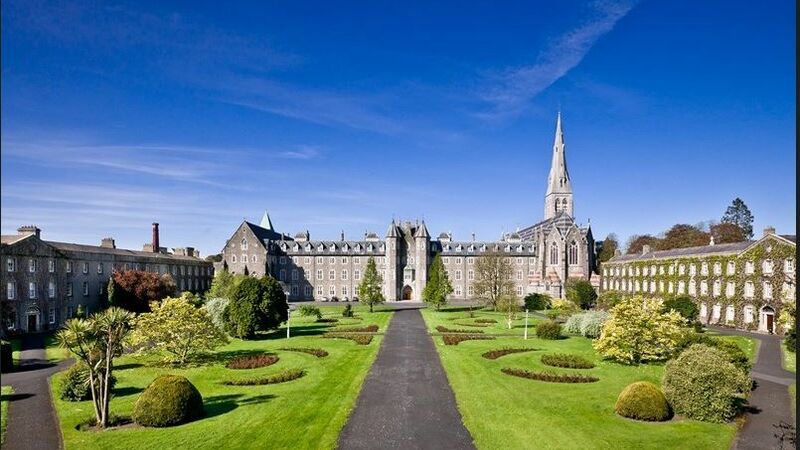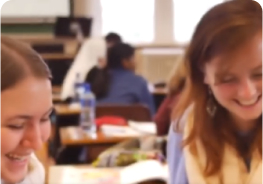Doctorate in Theology (Full-Time / Part-Time)
A candidate undertaking the PhD in Theology delineates and investigates a question, a question that fascinates the candidate and captures their imagination. This programme of study can be undertaken on either a full-time or part-time basis.

Postgraduate - Full Time |
4+ Years |
| Fees and Funding | |
Application Deadline: |
02nd August 2024
For EU & those living on the island of Ireland (Late applications may be considered). |
|
31st May 2024
For non EU |
|
Course Start Date: |
September 2024 |
| Get info | Apply now |
Introduction
A candidate undertaking the PhD in Theology delineates and investigates a question, a question that fascinates the candidate and captures their imagination. This programme of study can be undertaken on either a full-time or part-time basis.
Description
Non-EU students should contact pgadmissions@spcm.ie for guidance on their application.
Under the supervision of a member of the Faculty of Theology, a candidate undertaking the PhD in Theology delineates and investigates a question or the aspect of a question in a way that permits her or him to acquire an overarching mastery and competence in their chosen theological discipline, so as to formulate a thesis, write a dissertation thereon, and thus contribute to the development of theological understanding. The Faculty of Theology currently supervises the PhD in Theology in all principal theological disciplines.
Obtaining a doctorate is not just obtaining a more advanced degree—gaining a doctorate is gaining another life! Researching and writing a doctoral dissertation is not simply a question of more detailed and demanding study, it is the study of a question, a question that fascinates the candidate and captures their imagination. As well as academic ability, undertaking doctoral studies demands dedication, focus, and an ability to hold to one’s academic path. This is clearly not for everybody, but for those who endure in their research, the rewards are great: an overarching mastery and competence in their field of research, a deep insight not only into their sub-discipline, into the very character of theology or philosophy, an ability to frame and engage new questions and research challenges as they emerge.
The Maynooth doctoral candidate—be it for the PhD or the D.D. (S.T.D.)—has access to a very large, international, multilingual, research active, and diverse Faculty in the Catholic tradition that is part of a dynamic academic network across Europe’s premier theology faculties, in an institution where theology has been taught since 1795, with a contemporary research library (the John Paul II University Library) and a venerable archival library (the Russell Library), and sharing research facilities with a large State university on Ireland’s most beautiful and most peaceful University campus.
Are you considering a career in research? The PhD programme is an opportunity for those who want to further their studies after completing a master’s degree. A PhD will qualify you to lecture in higher level education, conduct research and enter other fields where there are high standard for scholarly insight and advanced analytical thinking.
Career Outcomes
Are you considering a career in research?
The PhD programme is an opportunity for those who want to further their studies after completing a Master’s Degree. A PhD will qualify you to lecture in higher level education, conduct research and enter other fields where there are high standard for scholarly insight and advanced analytical thinking.
Course Structure
View Seminar Courses on offer 2021-2022
A viva voce examination of the dissertation is required for the awarding of the PhD.
I. The candidate shall in the first place submit three copies of the dissertation which may be ring-bound.
II. The examiners shall be the supervisor of the dissertation, an external examiner chosen by the Faculty, and an internal Reader, member of the Faculty appointed by the Faculty.
The Faculty will also appoint a chairperson for the viva, and members of the Faculty are invited to attend.
III. The examiners may accept or reject the dissertation for defence.
IV. The format of the defence shall be decided by the examiners but shall not exceed one and a half-hour's duration.
V. The examiners shall make a written recommendation to the Faculty.
VI. The dissertation may be accepted without change or with some modifications, or it may be rejected on the basis of the viva voce examination.
VII. In the event of a successful viva the candidate must submit a hard-bound copy of the dissertation incorporating any changes which the examiners may require. Changes are verified by at least one of the examiners. The degree shall not be conferred until receipt of a duly revised copy has been confirmed by the Director of Postgraduate Studies.
VIII. A copy of the dissertation will be lodged in the John Paul II Library, and candidates will be invited to complete the following declaration: I hereby agree that the copy of my dissertation deposited in the Library shall be available for consultation under conditions laid down by the Pontifical University.
IX. All dissertations shall remain the property of the University.
Application Requirements
Applications are now being accepted on www.pac.ie (Full-time code - MU502) (Part-time code - MU503)
If you have any queries please contact pgadmissions@spcm.ie.
PLEASE NOTE: Application forms must be completed in full, and all documentation must be provided BEFORE an application can be considered. Applicants will not be called for interview if an application is incomplete.
Admission Requirements
A Master’s Degree in Theology of at least Second Class Honours Grade I or its equivalent.
The Faculty of Theology may also accept applicants whom it deems to have achieved an equivalent standard.
A competence in theological language(s) is a qualifying requirement
- Doctoral candidates entering the Faculty of Theology shall be required to sit a qualifying examination in at least two of the following: Hebrew, Greek, or Latin. Syllabi for these examinations here: Greek, Latin, Hebrew Grammar/Hebrew Vocabulary.
Qualifying examinations will take place during orientation week, which takes place the week before lectures begin.
- Latin qualifying examination will take place on the Monday of orientation week.
- Greek qualifying examination will take place on the Friday of orientation week.
- Candidates who do not pass the above qualifying examination, are required to attend and pass qualifying courses in at least two of the following: Hebrew, Greek, or Latin. In certain circumstances an advanced course in one language may be accepted in lieu of a second.
- Candidates who have successfully completed a one-year full-time University course in Hebrew, Latin or Greek are exempt, as are candidates who have successfully completed theological language courses in the Pontifical University.
- The language(s) requirement is merely qualifying and does not form part of the final assessment.
Candidates must have or must acquire a good reading knowledge of one modern continental European language.
Candidates whose first language is not English will be required to satisfy the English Language Requirements.
Postgraduate Degree candidates will normally be expected to register year by year on a continuous basis until they have completed their degree. Candidates wishing to suspend registration may do so only on the express permission of the Faculty. Upon registration, PhD candidates will be assigned a staff mentor to assist them in their choice of courses and thesis director.
Progress at doctoral level demands a significant investment of time by the candidate in personal study and research. As such, study and research requires access both to resources that are frequently only available in research libraries, as well as easy access to the candidate’s director or mentor, it is strongly recommended that doctoral candidates, especially at the beginning of their studies, spend at least three days per week on the Maynooth campus, during the semester.

If you live outside Ireland, check out our dedicated area for international students.
Let’s talk
For Undergraduate queries: email admissions@spcm.ie.
For Postgraduate queries: email pgadmissions@spcm.ie.
For The Centre for Mission & Ministries queries, email: cmmadmissions@spcm.ie.
